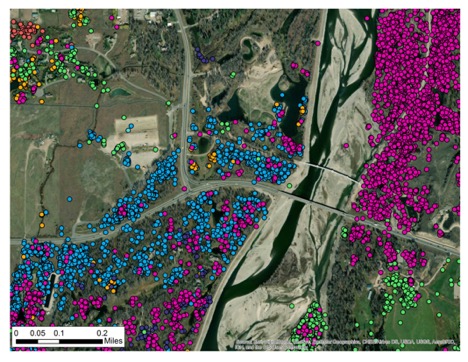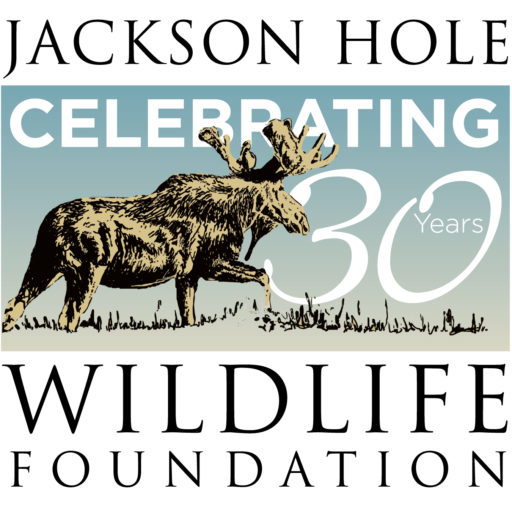Human Disturbance
Limiting Our Impact When and Where We Can
Research has acknowledged that interest in the outdoors has boomed over the last decade. Jackson has experienced a disproportionate amount of growth each year as visitation and the number of residents increase. Last year, 2.6 million people visited Jackson, many of them drawn to the region’s sense of “wildness.”
The wildlife habitat within the Snake River Corridor is not immune from this human pressure. Though scientific evidence for exactly how human presence affects wildlife can be hard to quantify and ranges depending on species, time of year, etc., a growing human footprint is seldom beneficial for wildlife. For example:
1) Research has shown that across the globe, animals are becoming more nocturnal to avoid humans, which may provide relief but also have ecosystem-level consequences.
2) Ecologists studying Colorado elk herds have concluded that calving elk experienced a 30% calf mortality when mothers were disturbed an average of seven times during calving.
3) Increased human use, especially presence of dogs, has been shown to cause certain species to avoid or abandon an area altogether.
Photo Credit: Jackson Hole News and Guide. Studies show the presence of dogs can cause some animals to alter behavior, including abandoning habitat altogether.

Moose collar data from Wyoming Game and Fish indicates moose activity is largely confined to cottonwood habitat within the Snake River Corridor. This habitat type also experiences relatively-high rates of human disturbance.
Learn about Neighbors to Nature: Cache Creek
Causes for Optimism
While human presence affects the behavior of wildlife, there is also data that shows animals can tolerate a certain amount of anthropogenic pressure.
Neighbors to Nature: A Cache Creek Study, is one of our projects here at JHWF which seeks to better understand the relationship between wildlife and humans on local trails.
Data from Neighbors to Nature will be helpful in supporting the sustainability of this public land resource for wildlife, wild land, and diverse recreational experiences for years to come.
What can I do?
When you are recreating in the Snake River Corridor, whether it be fishing, boating, running, or walking your dog, you can make a difference simply by realizing that you are sharing habitat with wild animals that may be sensitive to your presence.
Please keep control of your pet and obey all leash laws. If you encounter wildlife, give them appropriate space, not just for your safety, but for the health of the animal(s).
Finally, consider taking action to advocate for the protection of the intact habitat that remains largely free from human presence within the Snake River Corridor.

